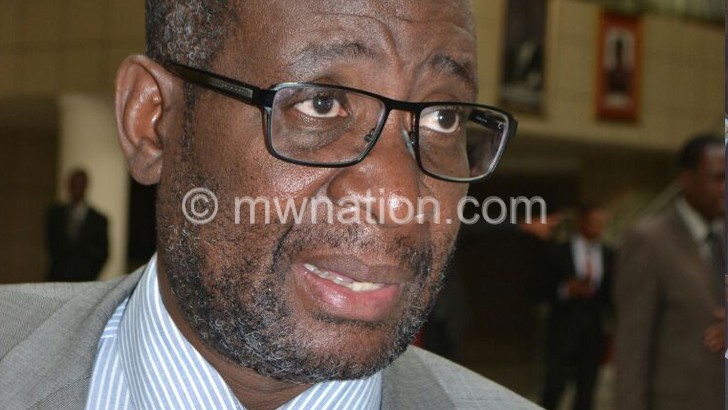Govt to proceed with Ifmis procurement
Accountant General (AG) Crighton Chimombo says government is going ahead to procure the new Integrated Financial Management Information System (Ifmis) from Twenty Third Century Limited at $14.8 million (about K10.2 billion).
He said negotiations with the winning bidder are expected to be done by next week and the system to be operational in 2019.

“We are at advanced stages of negotiations with the winning bidder. Hopefully, by next week we will be through, and the system will be operational by next year. The procurement process has taken long because a project of this nature is very complex,” said Chimombo in an interview after meeting the Budget and Finance Committee over the procurement process of the new Ifmis software.
The procurement process started in February 2014 and the deadline for bids submission was on September 11 2015 after it was extended twice on request from the bidders.
The bid opening was conducted in Salima on September 11 2015 where 12 bids were opened and their respective prices were announced, which this reporter has seen.
Twenty Third Century whose 2015 bid price was $13 807 561.46 (about K10.2 billion), puts its recurring costs every three years at $3 086 294.73 (about K2.1 billion) , which the taxpayer would have to cough up.
Transnational Computer Technologies had set its bid price at $12 200 000 (about K8.9 billion) and at a recurring cost of $1 418 780.21 (about K1 billion) for five years.
Another firm, Free Balance, had set its offer at $13 995 935 (about K10.3 billion).
Information our sister paper Weekend Nation sourced indicates that the other bidders include KPMG whose total bid price was $47 858 154 (about K35.2 billion); TBL whose bidding price was $6 573 326.04 (about K4.8 billion); Neurotech whose bidding price was $8 883 110.53 (about K6.5 billion) and State Informatics Sparc Systems Novabase whose bidding price was $28 241 975.00 (about K20.2 billion).
The successful bidders, according to Chimombo, were Transnational Computer Technology, Twenty Third Century Systems, and Free Balance. But the first bidder failed in live demonstration of the system operation, leading to Twenty Third Century winning the bid.
“We hope the negotiations go well. That is why we are talking to them not to increase the amount because we know the bidding happened some years back and prices of things have increased,” he said.
In the 2018/19 fiscal year, government has allocated K5 billion for the procurement of the new Ifmis whose software, according to Minister of Finance, Economic Planning and Development Goodall Gondwe, is expected to enhance speed and security in processing government financial transactions, expenditure tracking and bank reconciliations.
In June this year, the AG failed to convince some stakeholders why government was engaging a Zimbabwean firm, Twenty Third Century, to provide software solutions called Enterprise Resource Planning (ERP) to operate Ifmis three years after 12 bidders expressed interest.
This prompted the Public Accounts Committee of Parliament and some civil society organisations to call for the AG’s resignation for alleged unprofessional conduct over the procurement of the new software.
Secretary to the Treasury Ben Botolo is on record as having said that the best way to solve the mystery surrounding the procurement of the system was to restart the whole process, particularly since the bidding was done in 2015 and they expect that the prices will escalate.
Budget and Finance Committee chairperson Rhino Chiphiko expressed satisfaction with the new track the office of the AG has taken.
He said: “We are happy with the process that was followed to purchase this system. In the first place, we were told that it had a restricted tender system which we were not happy with, but after the change to international competitive bidding, we are happy with the process that was followed.”
It is envisaged that the new Ifmis will cover government business processes that are currently being done outside the current one such as project management, asset management and financial management.
Despite technological advancement in financial Enterprise Resource Planning (ERP) software, government is still using Epicor 7.3.5, an outdated system that puts government financial management at risk.





